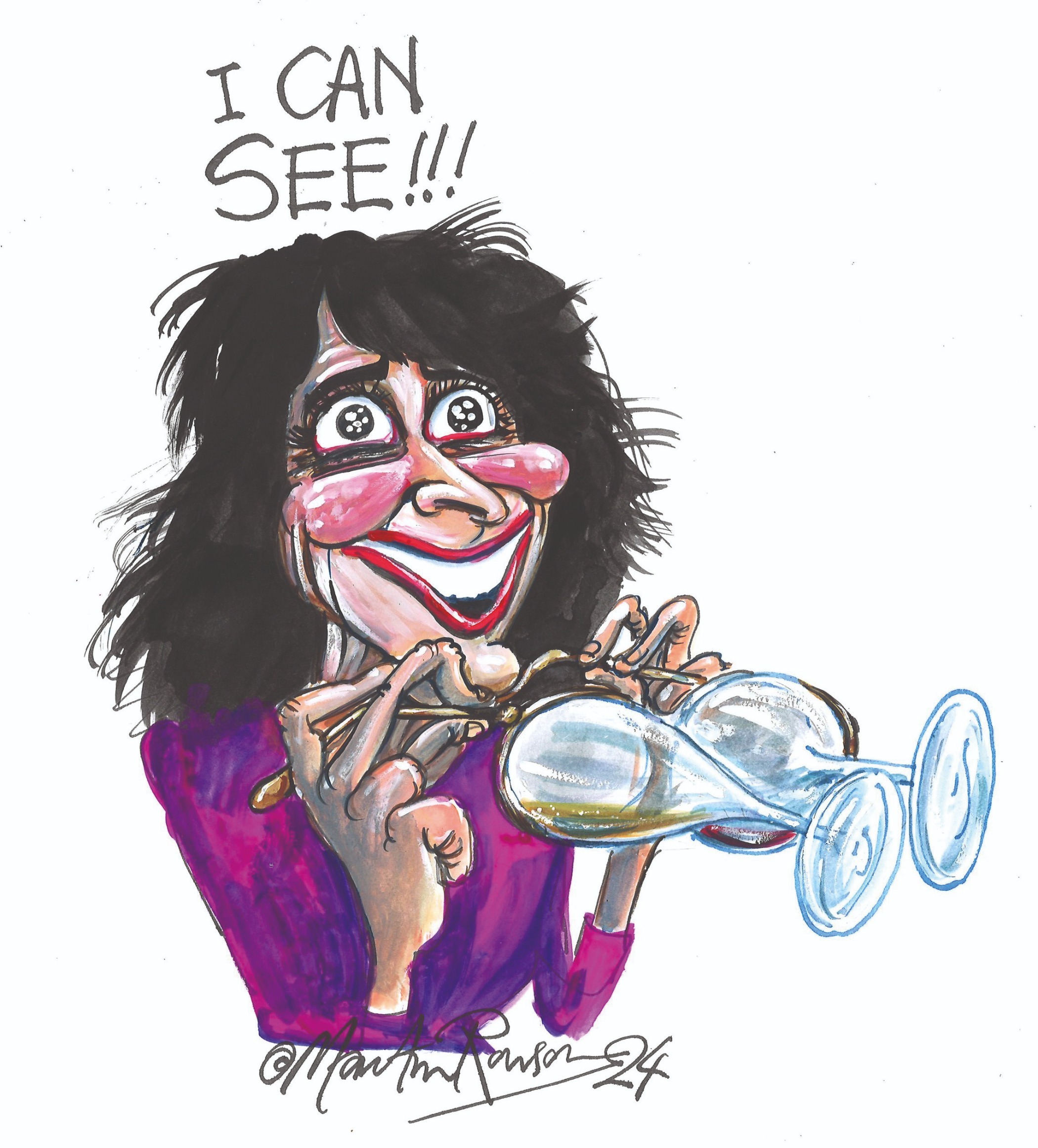
‘‘Darling, what’s happened? Are you OK?” My friend gently guided me to a chair at her kitchen table and sat me down. “I’m fine,” I chirped. She did not look convinced. I had, after all, just refused a glass of wine.
I have been sober now for 94 days. This might not seem like a long time to some people, but for me, it’s something of a miracle. I’m a lifelong drinker. Pretty much every day. Some might call this “alcohol dependency”, most just call it “British”. In our culture it’s perfectly acceptable to have your first pint at four in the morning, provided you’re in an airport, on the way to a holiday.
So it can unnerve people if you stop drinking. Particularly if you are of my generation, who came of age in the boozy, ladette culture of the 90s, and you are not an obvious alcoholic, on antibiotics or pregnant. I am none of those things. “But I really am fine,” I repeated as my friend poured herself a huge glass of wine. She then began to talk about her own drinking habits, explaining why it wasn’t a habit at all, she just happened to do it every day. “It’s okay, I’m not trying to convert you,” I said, “I’m not judging you.”
That’s what it can feel like, though. I’ve felt judged myself sometimes, in my decades of being a boozer. When one of my circle kicked the booze, it shone a light on my own habits, how any social situation – work drinks, a theatre trip, volunteering at the school disco – were all unthinkable without a glass in my hand.
“I never drink on my own!” I would say, to confirm it wasn’t a problem. But then, I was never alone.
Sometimes I would watch my 10-year-old running around with her friends – chattering, laughing their heads off – all without needing a glass of prosecco to make each other more interesting. Why couldn’t we adults do that? Will these brilliant children of mine also end up anaesthetising themselves in order to have a good time?
My 16-year-old son assures me, “No, because we like ourselves.” An admirable level of passive aggression, I think, and quite right.
Their culture is different. I notice the change in the comedy circuit. The younger comedians don’t see total oblivion post-show as part of the job. When they come offstage they might drink juice and wander off into the night – to meditate under some trees, I assume. Younger people are surrounded by conversations on how to take care of their mental health. My generation were either “mental” or “not mental”. Alcohol dependency was so acceptable that it seemed a little dramatic to show concern that I needed a drink in order to hang out with other humans.
But what my son said affected me. I realised that I felt enormous pressure when I was sober. I felt that if I kicked the booze, I would have to become better all round. The Wise Old Woman of the Mountains with fabulous insights. I would have to suddenly acquire incredible self-awareness – and never say to someone backstage, “Hi, nice to meet you, I’m Shappi,” only to have them reply, “I know who you are, I’m your agent.” When this happened at a festival one summer, I blamed the beer. The truth is, I have a problem with remembering faces.
I’ve accepted now that even when sober, I am bound to do or say foolish things, like accidentally trying to chat up my own agent. Since then, not drinking is a cinch. That’s what I try to explain to my friend. I’m not having a crisis. I just want to live a life with no hangovers, for once. I also want to actually know if I have a real connection with someone, or if we just both love drinking.
The word “sobriety” is off-putting. It’s far too sober for what is actually an exciting voyage of self-discovery. The longer I stay sober, the more of “me” comes back. Self-acceptance has replaced self-medication. I still love parties, but I know when home-time is. I still overshare and still dance like a baboon, but I don’t need to blame it on the booze.
It’s just me, in this one tiny snippet of life I have been given, finally being present and conscious for every part of it.
This article is from New Humanist’s summer 2024 issue. Subscribe now.

